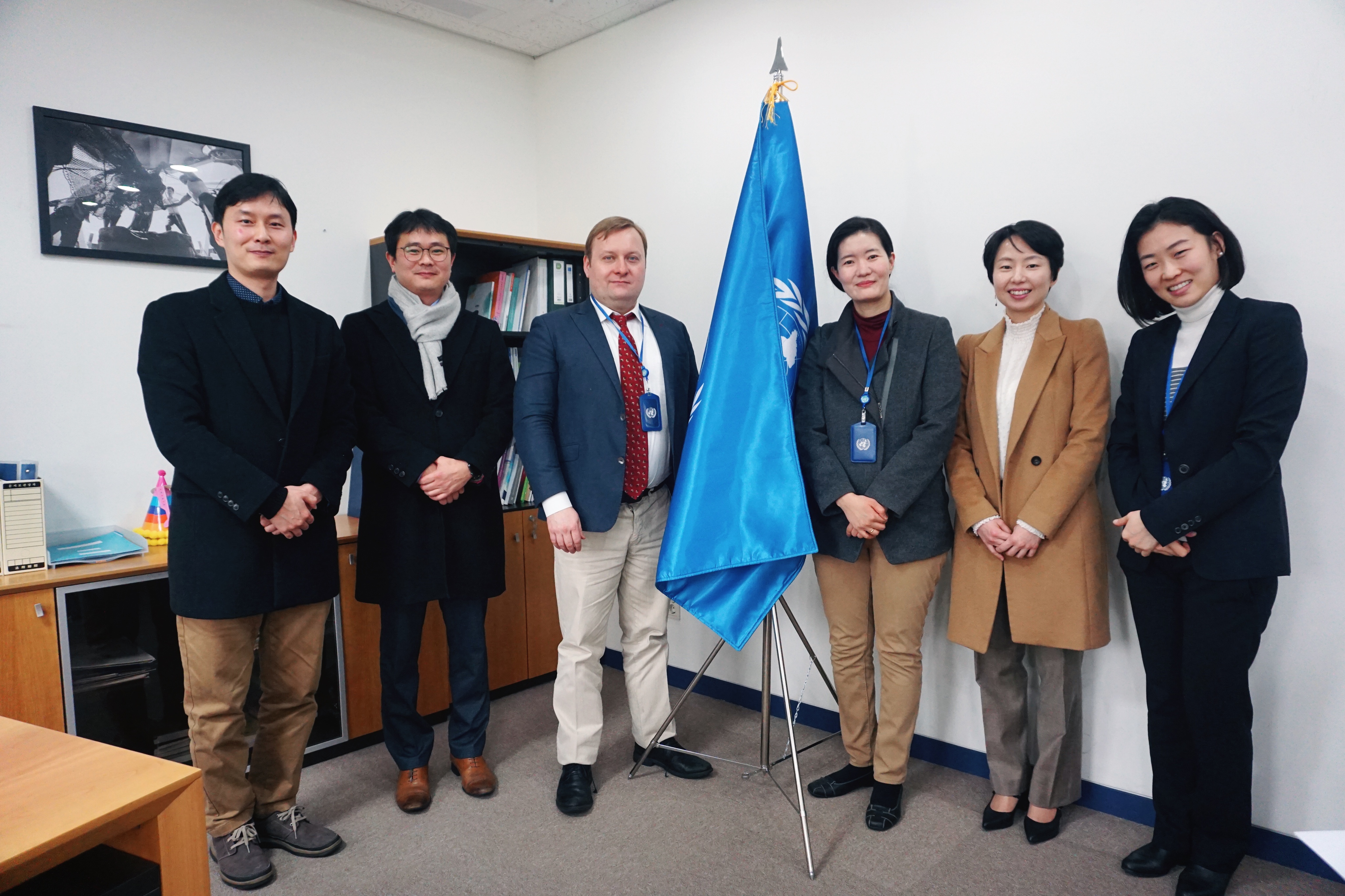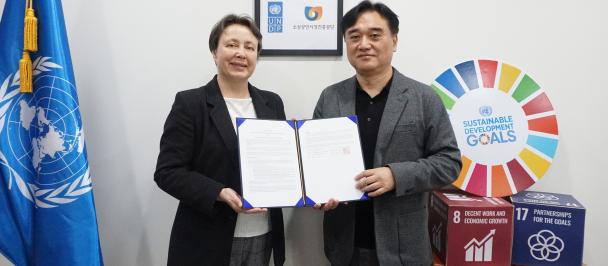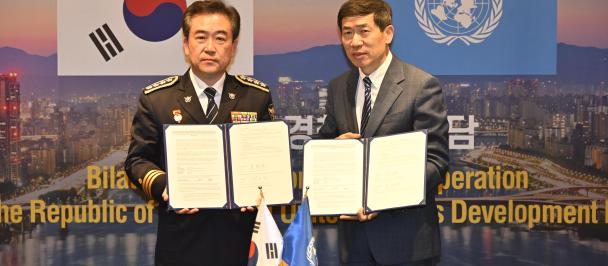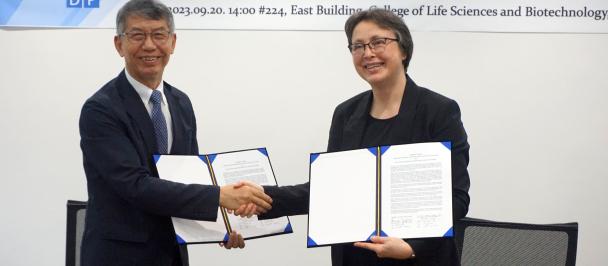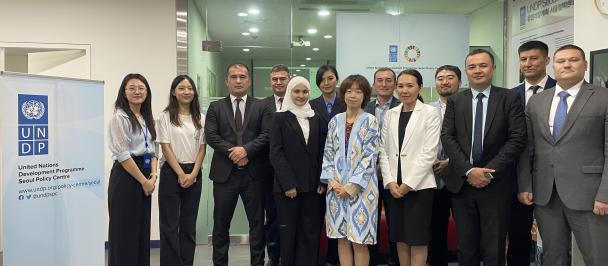Police officers and organizations are often the first responders to a gender-based violence (GBV) case. Moreover, they play a critical part in the reporting and investigation of such incidents. This makes their role that much more vital in partnerships that involve gender-based crimes and victims. For this reason, building police capacity to address GBV must be an integral part of any country’s efforts to achieve sustainable development. In fact, fighting GBV is clearly mentioned in Sustainable Development Goal (SDG) 16, adopted by all UN member states in 2015.
UNDP Seoul Policy Centre (USPC) shares Korea’s development experience and innovative policy tools with developing countries through its Development Solutions Partnerships (DSPs). Since the launch of gender-based violence DSPs in 2017, USPC has worked closely with Korean National Police University (KNPU) to identify effective tools and mechanisms to enhance police responses for GBV cases based on experiences and lessons learned from Korea. Police capacity-building involves acknowledging the importance of a victim-oriented and rights-based approach in the policing service, as well as the significance of an institutionalized response to effectively address GBV. USPC serves as a channel and bridge. The centre helps connect partners like KNPU with counterparts in selected countries through resource books, webinars, and study visits in order to effectively exchange experiences and knowledge. Ultimately, the goal of the DSP programme is to help build contextualized solutions for each partner country so that they are able to address their specific, local challenges.
Raising awareness and implementing institutional policy changes evidently take time; however, USPC and KNPU have already begun to see concrete results through the DSPs. Last year, for example, the sharing of Korea’s experience assisted in building a separate section and interview room at pilot police stations for GBV victims in Senegal. Victims and their families no longer have to register GBV cases at general reception desks, which has helped victims ensure confidentiality and privacy as well as increase emotional and psychological comfort. In Kazakhstan, a series of knowledge exchange activities, including webinars and technical workshops, were conducted in 2017 and 2018 on protocols and guidelines for investigating GBV cases. Such initiatives have led to the birth of Kazakhstan’s own police training module for sexual violence cases, which was inspired by the Korean experience and finalized to fit the Kazakhstan context. Based on this developed module, training was provided in 2018 for local police officers in Astana, as well as for trainees from Karaganda and Almaty Police Academies.
As a continuation of these initiatives, USPC and KNPU held a partnership meeting on 19 February 2019 to discuss strategies and collaborative activities to undertake for GBV DSP projects this year. With Kyrgyzstan and Zimbabwe as the newly selected DSP partner countries for 2019, KNPU and USPC agreed to strengthen both the breadth and depth of these partnerships. The parties also discussed how they could effectively and honestly share Korea’s experience and lessons learned in ways that can empower the partner countries to find their own practical solutions on solidifying police capacity to address GBV. “Both changing the institutional structures in the police and transforming the mindset and attitude of individual officers are imperative for addressing gender-based violence,” said Mr. Kwanhee Lee, the Superintendent and the Chief of International Cooperation Section at KNPU.
The meeting was concluded on a positive note, with both organizations thanking each other for the substantive partnership through the DSP programme—brining the lessons learned from Korea’s police with the country-level implementation channel of UNDP, which enables “real translation” of knowledge-sharing into concrete results on the ground. USPC and KNPU will continue to explore future opportunities to expand and enrich its collaboration for the benefit of partner countries.

 Locations
Locations